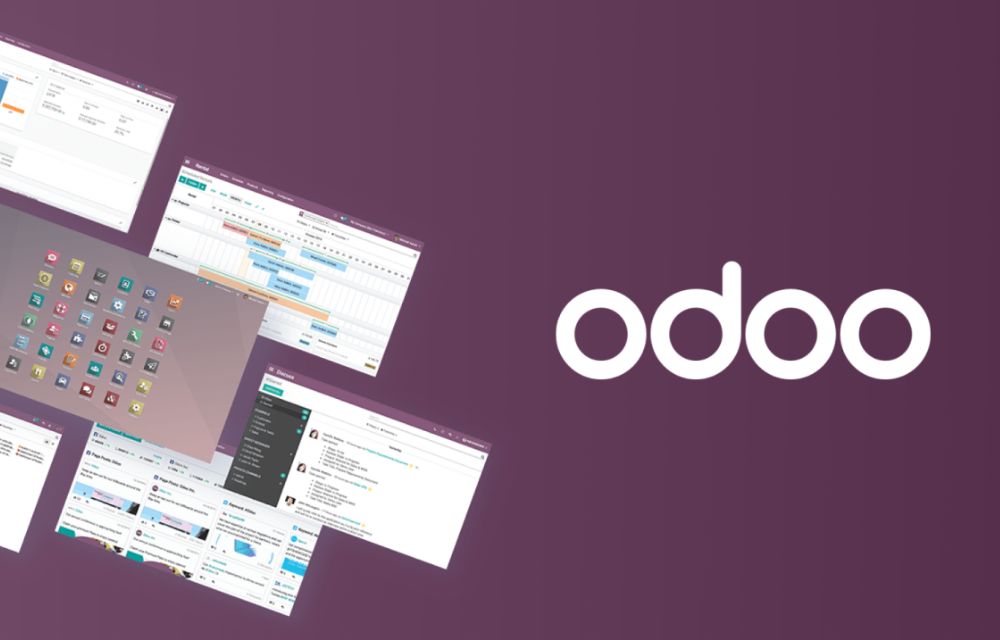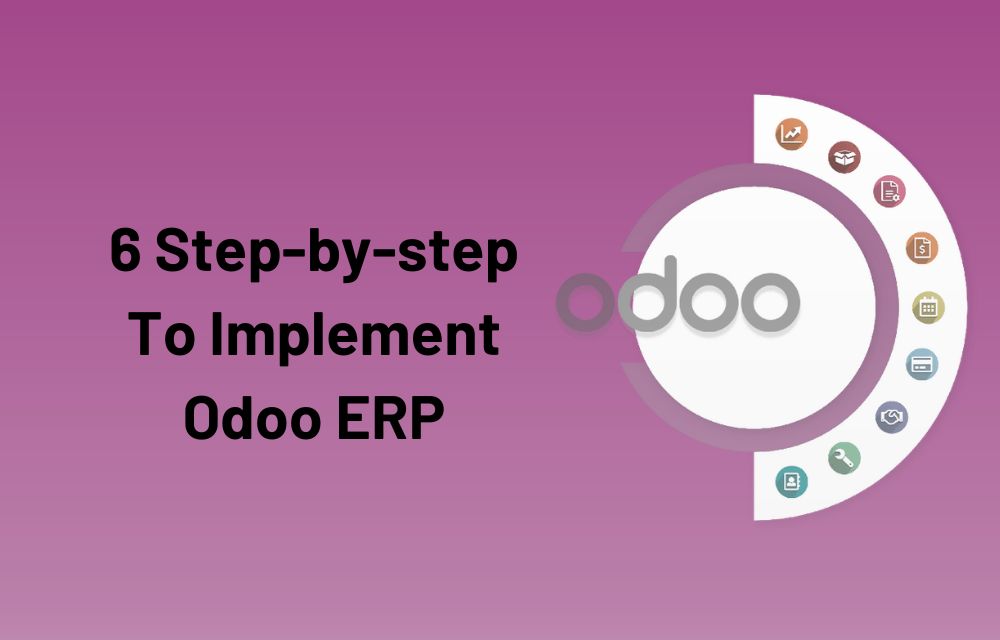Facing the challenges in business management, many businesses in Malaysia find Enterprise Resource Planning (ERP) which is a software solution to manage operations, including inventory, human resources, accounting, and customer relationship management. Odoo is an open-source ERP solution designed for small businesses with various best-in-class features to streamline processes and improve efficiency. Known as an all-in-one business management software, Odoo ERP is an easy-to-use and scalable cloud-based ERP with a range of modules that allow SMEs to digitalize business operations without technical barriers. Thus, you also need to find the right Odoo implementation partners in Malaysia to execute the ERP solution. In this article, we will show you a comprehensive guide to Odoo implementation for SMEs.
Why need Odoo Implementation?

Since deciding on the Odoo ERP, businesses want to unlock its power to transform digitalization effectively. Like other software solutions, Odoo has different benefits to help your business in the digital journey and catch up with the latest technologies. Let’s browse several advantages of Odoo implementation for your business:
Scalability and Flexibility: Odoo is an open-source platform that allows you to easily add or customize new modules. Thus, whether you open new branches or enter a new market, Odoo ERP can meet your needs.
Improve efficiency and productivity: With the flexible feature, you can integrate Odoo with third-party systems into a single platform to streamline business processes. Additionally, Odoo provides sales orders, tracks inventory, or handles payroll to reduce manual effort and minimize data duplication. Furthermore, Odoo allows you to automate several tasks like workflow approvals and scheduled tasks, etc.… This enables you to focus on value-added tasks rather than repetitive administrative work.
Data-driven Decision-making Organization: It is easy for you to centralize data on the Odoo platform, ensuring consistency and accuracy. You can gain a holistic insight into business performance with real-time reporting and visual analytics. You don’t need to worry about errors in inventory and warehouses when starting Odoo implementation. Thus, you can make informed decisions through up-to-date data and reporting on the dashboard.
Cost Savings and Resource Optimization: Thanks to open-source architecture, Odoo allows businesses to eliminate licensing fees when expanding. You also can allocate resources efficiently to optimize inventory levels or scheduling production like time, money and workforce. Besides, with the automated feature, manual labor and operational costs will be reduced.
Improved Customer Experience: You don’t need to manage a separated platform, leading to time and complex processes. Now, the integration of Odoo and the CRM module will help you manage customer connections.
6 Step-by-step To Implement Odoo ERP

Define Business Needs, Goals, & Budget
It is important when developing Odoo ERP that you thoroughly evaluate your business requirements and goals while taking a comprehensive look at your current processes. Additionally, you also need to consider long-term goals, scalability, and overall strategic vision. Besides that, management should also set a realistic budget in accordance with your business goals and resources.
Conduct Business Process Analysis & Decide on Collaboration
Conduct business process analysis to better understand the actual operations and day-to-day work within the organization. Odoo allows you to customize based on the specific requirements of your business. You can choose Odoo implementation partners in Malaysia to receive expert guidance, best practices and access to specialized knowledge.
Creating a Project Plan & Timeline
When implementing Odoo, management must plan the project in detail from key milestones, related tasks and responsibilities. Additionally, you must also set realistic timelines, considering its potential and potential challenges. Of course, the Odoo implementation project requires the combination of many parties, both in-house or outsourcing IT staff and external consultants if necessary. Based on the set strategy, you need to ensure progress and changes are regularly updated to allocate human resources and budget appropriately.
Odoo System Setup/Building
Your technical team starts by installing and configuring essential Odoo applications that suit your business needs such as accounting, inventory, sales, etc... At the same time, set up roles and user permissions on Odoo ensure that employees have the right level of access. With Odoo, you can easily consolidate and transfer data seamlessly. What's more, Odoo also allows you to customize or integrate 3rd party applications.
System Testing
Odoo implementation partners in Malaysia will let end users test Odoo based on predetermined scenarios to confirm the system meets the requirements. At the same time, they will address any anticipated problems or errors.
Deployment
Start to migrate data from legacy systems to Odoo ERP system and validate data accuracy during migration, you need to ensure that transition is smooth. Your data team will migrate and classify data on the Odoo system. After that, you begin to go live with the Odoo for daily operations. You should evaluate your Odoo system’s performance to update or custom to reach the optimal quality.
Hosting and Support
Whether you want to host your Odoo system on Odoo Online or a cloud package, you should evaluate based on your business needs. Because each method has different benefits, you may consider them. Additionally, if you execute Odoo with Odoo implementation partners in Malaysia, you can receive post go-live support during the transition period to address user queries and troubleshoot any issues.
Things to Consider Before Choosing Odoo implementation partners in Malaysia
Choosing the right Odoo implementation partners in Malaysia give you various essential benefits for your business to build the suitable Odoo ERP solutions. Odoo ERP possesses many different modules and functions, Odoo partners like A1 Consulting can help you find solutions that meet your requirements. Furthermore, Odoo implementation partners in Malaysia will provide you with a customizable Odoo ERP solution to suit your business systems and processes. Here are several factors you need to consider to choose Odoo partner:
Verify portfolios to check credibility
You should choose potential Odoo partners who have experience completing a project similar to yours. You can rely on direct communication about experience, Odoo certifications, and other skills related to ERP implementation in general.
Vast Expertise
Choosing a partner with expertise and long-term experience will be an important step in your implementation process. With rich knowledge and expertise, Odoo implementation partners in Malaysia will help develop Odoo solutions faster and better suited to your needs. At the same time, they will also ensure project progress and budget.
Flexibility and communication
Odoo ERP implementation takes a lot of time and changes can occur as the project develops such as technical issues, business requirements, etc... Make sure you can work closely with Odoo partner to address any problems that arise during deployment. Additionally, during the implementation process you will sometimes have changes, Odoo partner needs to provide flexibility in allowing customization and changes.
Planning
It is an essential element in Odoo implementation for you to ensure that you gain a comprehensive understanding of business insights and ERP requirements. Looking for Odoo ERP implementation partners in Malaysia based on your requirement to adapt both experience and expertise. Furthermore, your consultants need to identify the potential business issues and pain points to map out processes before executing a new ERP solution. Especially, SMEs have lower costs and resources, you need to plan in detail to make sure that your investment is right without unessential modules and functionalities, leading to taking money.
Conclusion
Odoo ERP plays a vital role for small businesses to improve their operations. Thanks to Odoo implementation, you can optimize your costs and resources in the value tasks. If you want to implement Odoo or are looking for Odoo implementation partners in Malaysia, this article is for you. You can follow the steps in this guide to successfully implement Odoo or try A1 Consulting’s services and enjoy its benefits. Known as one of Odoo implementation partners in Malaysia, A1 Consulting has seasoned experience and expertise in executing Odoo for SMEs in various industries. Contact us now!
